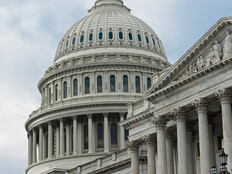Technology Innovation Boosts State Economies
While Colorado has seen new, fast-growing industries crop up of late, the state’s tech industry has proved to be a steady driver of economic development.
The state boasts the third-largest concentration of tech workers, behind only Massachusetts and Virginia. Tech workers make up 9 percent of Colorado’s workforce, and the industry generates 11.5 percent of its annual economic output, according to CompTIA’s Cyberstates 2016 report. Tech workers there made an average of $106,400 in 2015, nearly double Colorado’s average private-sector salary. State tech initiatives not only boost innovation in public-facing services, but also spawn greater opportunities for residents.
Initiatives in states such as Colorado and Virginia demonstrate the public sector’s critical role in innovation and incubation. And as voters head to the polls this fall, with the economy among their top concerns, the public sector has found that IT initiatives may also serve to right what may otherwise be an unbalanced economy.
States See Sky-High Opportunities with Drones
As home to the Pentagon, the commonwealth of Virginia provides fertile ground for the cybersecurity industry. The Old Dominion’s defense, intelligence and tech industries all develop security solutions that protect our systems and data. The 2016–2018 state budget includes more than $6 million for cyber initiatives such as education.
Virginia also aims to lead innovation in drone technology by making significant investments in research and development. The Association for Unmanned Vehicle Systems International estimates that unmanned aircraft systems will create more than 100,000 jobs and have an economic impact of $82 billion by 2025.
Tapping that growing market has the potential to bring opportunity to parts of the state still faltering from the decline of the coal industry. Wise County, Va., made history last year as the site of the first Federal Aviation Administration–approved drone delivery of medication to a rural health clinic. And in July, one state university received about $900,000 to develop and implement courses in unmanned aircraft systems. Virginia’s Secretary of Technology oversees the state’s Unmanned Systems Commission, solidifying the connection between the burgeoning industry and state IT.
“Unmanned aircraft systems are becoming increasingly important in many industries,” said Virginia Senator Mark R. Warner in announcing the award in July. “Virginia can set itself apart from its competition by creating a workforce pipeline of well-trained operators and researchers.”









